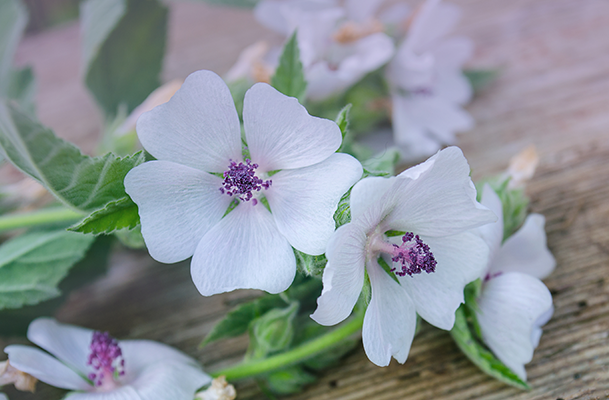02 January
Herbs that help to support the digestive system
 Edeline Bourrier
Edeline Bourrier
Edeline Bourrier
Edeline Bourrier
Nature has provided an abundance of herbs to support the digestive system, promote and encourage appetite, aid in the absorption of nutrients or help heal damage to the digestive tract. Here are a few herbs that can do just that.
Marshmallow
Latin name: Althea officinalis
Best part to use: The root & leaves
Actions of the root:
- Laxative - stimulate or facilitate evacuation of the bowels.
- Nutritive – providing nourishment.
- Demulcent – relieving inflammation or irritation.
- Anti-inflammatory – reduces inflammation.
- Soothing - reducing pain or discomfort with a gentle calming effect.
Actions of the leaves:
- Expectorant - promotes the secretion of sputum by the air passages.
- Antitussive – prevent or relieve a cough.
- Demulcent – relieving inflammation or irritation.
- Emollient – softening or soothing the skin.
- Diuretic - promotes the formation of urine by the kidney.
Why is it good: This is a plant where either the root or the leaf is selected depending on which part of the body you are treating. The root is used for the digestive and urinary systems, the leaf is used for the respiratory system. One of the key constituents in the root is mucilage which when ingested produces a slimy, cooling paste perfect for soothing any irritated or inflamed surfaces it comes into contact with in both the digestive and urinary system. Marshmallow combines well with Slippery Elm and is often used in supplements for horses prone to digestive disorders.
Fun fact about Marshmallow: the fluffy sweet treat, Marshmallow, used to be made with the mucilage (sap-like substance) from the root of the marshmallow plant. Cooks in France mixed the root’s sweet mucilage with sugar and eggs, and then beat it into a foam. These early marshmallows were casted and moulded, which was an extremely labour-intensive process. The French called it pâte de guimauve. Guimauve is the French word for marshmallow today.
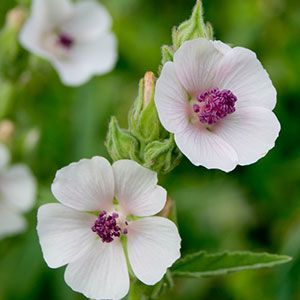
Peppermint
Latin name: Mentha piperita
Best part to use: The leaves
Actions:
- Stimulant - raising levels of physiological or nervous activity in the body.
- Antispasmodic - relieves spasm of involuntary muscle.
- Carminative - relieves flatulence.
- Anti-inflammatory – reduces inflammation.
- Analgesic – relieves pain.
Why is it good: Many proprietary horse feeds contain dried mint or peppermint oil to make the food more appetising to both horse and owner. The herb is one of the best digestive aids available and can help soothe and relax the digestive system. The volatile oil contains Menthol and has traditionally been used to help reduce flatulence and other digestive conditions.
Fun fact about Peppermint: Peppermint is a cross between Water mint and Spearmint, therefore making it a hybrid mint.
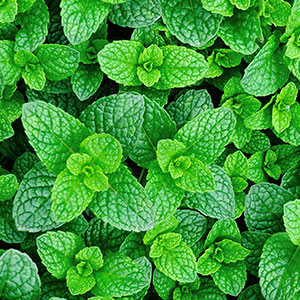
Fenugreek
Latin name: Trigonella foenum graecum
Best part to use: Seed. Alternatively, the aerial parts can be used as a fodder crop for animals.
Actions:
- Demulcent – relieving inflammation or irritation.
- Nutritive – providing nourishment.
- Laxative - stimulate or facilitate evacuation of the bowels.
- Expectorant - promotes the secretion of sputum by the air passages.
- Galactagogue - promotes or increases the flow of a mother's milk.
Why is it good: Fenugreek can be used to stimulate appetite, for gastric disorders such as ulceration and to encourage good milk production in nursing mothers. The seeds are extremely nutritive and contain up to 8% oil and 20% protein, as well as Vitamins A, B, C & E.
Fun fact about Fenugreek: The plant’s Latin name means ‘Greek Hay’ because in the past the plant was used to add ‘nose’ to poor quality hay. In the 1900’s it was used as a feed additive for both horses and cattle to help them put on condition. Most of us know the herb as one of the spices used in Asian cookery.
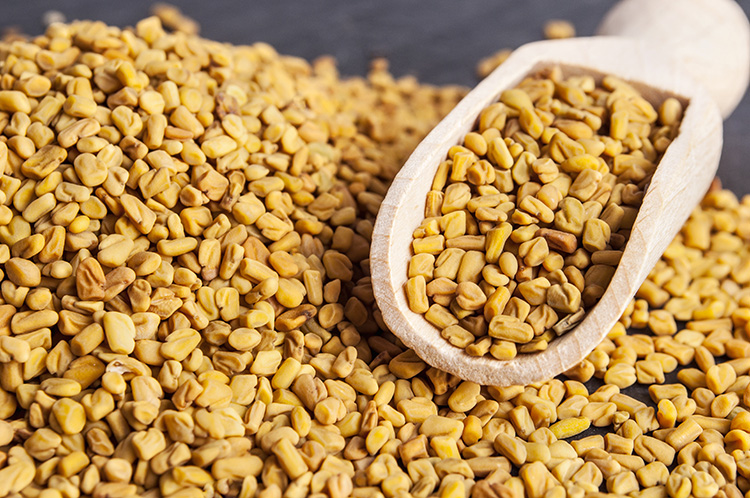
Liquorice
Latin name: Glycyrrhiza glabra
Best part to use: Dried root & occasionally the leaves.
Actions:
- Expectorant - promotes the secretion of sputum by the air passages.
- Demulcent – relieving inflammation or irritation.
- Anti-inflammatory – reduces inflammation.
- Laxative - stimulate or facilitate evacuation of the bowels.
- Adaptogen – help the body adapt to stress.
- Spasmolytic – relieve spasm of smooth muscle.
- Antibacterial – active against bacteria.
- Antitussive – prevent or relieve a cough.
Why is it good: Like Marshmallow it can be used for both the digestive and respiratory systems. It also provides a demulcent action, helping to reduce gastric acid secretions and making it ideal for any inflammatory gastric or digestive concerns.
Fun fact about Liquorice: Liquorice has been used medicinally for over 3,000 years and was spoken of by the ancient Greeks in the 3rd Century BC. Ancient herbals carry instructions for its use on both animals and people.
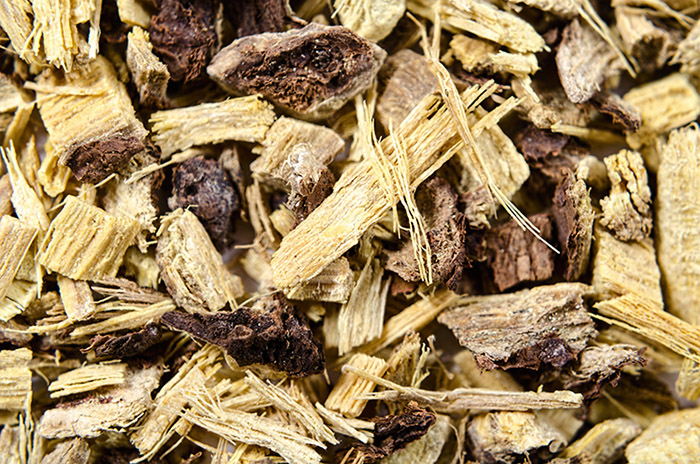
Useful reading:
- Common canine digestive issues
- Herbs for laminitis
Our Product Suggestion:

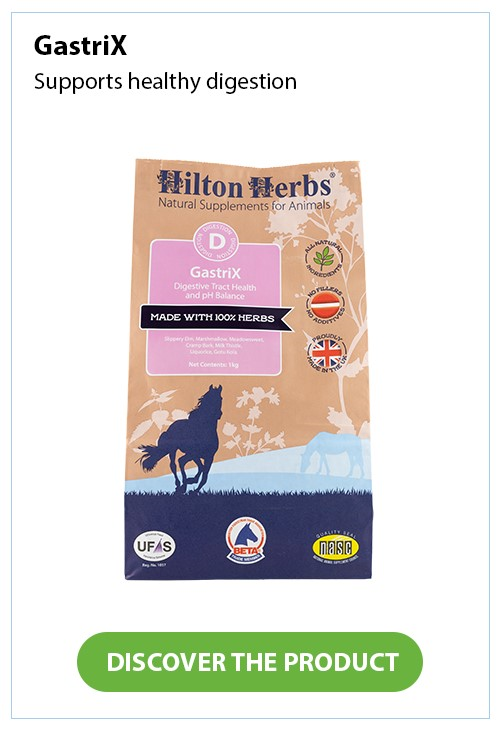

 About Edeline Bourrier
Edeline Bourrier
About Edeline Bourrier
Edeline Bourrier

























